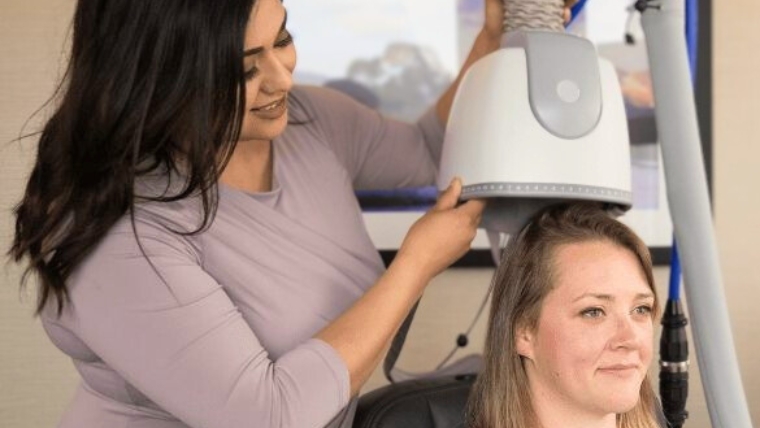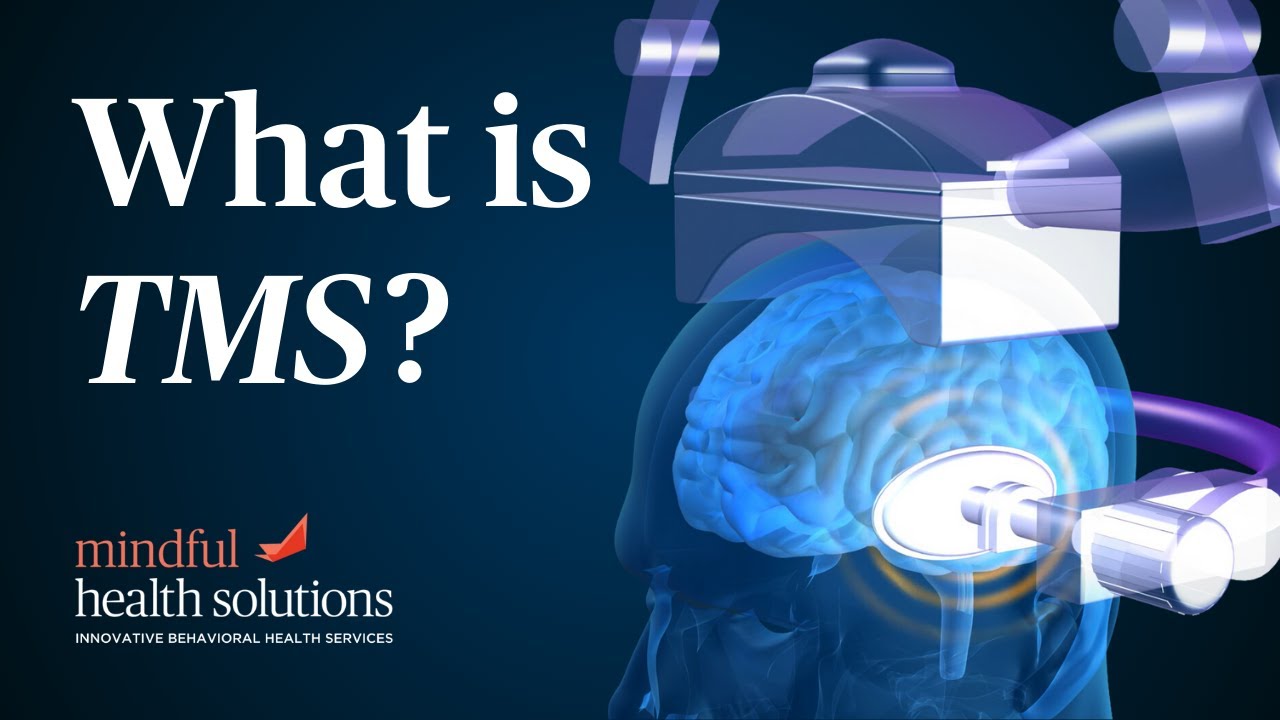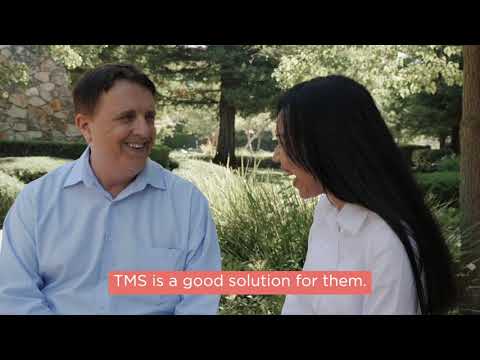Transcranial Magnetic Stimulation (TMS) therapy is becoming a source of hope for many battling depression and other mental health disorders. Despite its success rates and safety profile, myths and misconceptions cloud its reputation. Our mission today is to clear the air. Let’s debunk the most common myths surrounding TMS, and illuminate its potential to transform lives.
What Is TMS Therapy?
TMS is a non-invasive treatment method that uses magnetic fields to stimulate nerve cells in the brain. Specifically aimed at areas involved in mood control, TMS has shown incredible results in treating depression and other mental health conditions. This procedure is conducted using a coil placed near the forehead. The coil sends brief magnetic pulses that painlessly pass through the skull to reach the brain.
The magic of TMS lies in its ability to target the neurological roots of mental health issues. Traditional medications circulate throughout the entire body. However, TMS focuses directly on the brain’s neural pathways, encouraging the rebalance of neurotransmitter levels. This precise approach not only minimizes side effects but also caters to individuals who haven’t found success with two or more antidepressants.
TMS Myth #1: TMS Therapy is Painful and Invasive
Contrary to the idea that TMS is a daunting, painful experience, it’s actually quite gentle. Patients typically feel a light tapping sensation on the scalp. They also easily remain fully awake and comfortable throughout the treatment session. Most side effects are temporary and mild, such as slight scalp sensitivity or a mild headache post-treatment, which quickly subsides. The non-invasive nature of TMS means no surgery, no anesthesia, and no recovery time. All of these factors make it a remarkably patient-friendly option.
TMS Myth #2: TMS and ECT are the Same Thing
TMS is often confused with Electroconvulsive Therapy (ECT), but the two are fundamentally different. ECT requires anesthesia and induces seizures to achieve its therapeutic effect, often leading to memory loss and other significant side effects. TMS, on the other hand, stimulates the brain more gently and precisely, without the need for sedation or the risk of cognitive side effects. This distinction is crucial for understanding TMS’s safety profile. By offering a non-convulsive approach, TMS sidesteps the drawbacks of ECT, presenting a safer alternative with fewer and less severe side effects.
TMS Myth #3: TMS Therapy Has Severe Side Effects
While no treatment is free from side effects, those associated with TMS are notably mild and temporary. The most common include scalp discomfort and headache during or after treatment. Serious side effects, such as seizures, are exceedingly rare and typically occur only in situations not adhering to recommended safety guidelines.
Comparatively, the side effect profile of TMS is much more favorable than that of many pharmaceutical treatments, where systemic side effects can be more severe and far-reaching. This makes TMS an attractive option for those seeking effective treatment with minimal complications.
Explore these strange but true side effects of TMS.
TMS Myth #4: TMS is Only for Depression
The application of TMS extends far beyond depression. Its effectiveness in treating a range of mental health conditions, including anxiety, OCD, and PTSD, is supported by growing research and clinical trials. The FDA’s approval of TMS for various disorders underscores its potential as a versatile therapeutic tool.
Ongoing studies continue to explore and expand the boundaries of TMS’s capabilities, promising a future where more individuals can benefit from this targeted, non-invasive therapy.
Please note that TMS is only FDA-approved for treating Treatment-Resistant Depression at the time that this article was published.
TMS Myth #5: TMS Results are Ineffective
The misconception that TMS yields ineffective results is far from the truth, especially when we consider real-world data. At Mindful Health Solutions, our experience paints a clear picture, with our patients exhibiting remarkable outcomes: an 85% response rate and a 46% remission rate. These statistics underscore the success of TMS at treating depression, demonstrating that a significant majority of patients experience substantial improvement in their symptoms.
These numbers are particularly important to highlight in comparison to the success rate of medications. Since TMS is a treatment for Treatment-Resistant Depression, it works significantly better at helping those who haven’t found relief from medications. In fact, if a patient doesn’t have success with two medications, they only have a 16% chance of responding to a third medication. And that chance drops to just 7% if they were to try a fourth. Compared to our 85% response rate, TMS is a wonderful option for those not being helped by antidepressants.
TMS vs. Antidepressants: Which one is right for you?
It is also important to note that this data is not just numbers. It represents real people who have seen real changes in their lives. Success stories and case studies from our clinics consistently highlight the transformative impact of TMS on individuals who had previously struggled to find relief from their symptoms. By integrating TMS into a comprehensive mental health treatment plan, patients can achieve a level of well-being that was once thought unattainable.
TMS Myth #6: TMS Therapy is Excessively Time-Consuming and Disruptive to Daily Life
While TMS does require a commitment to treatment, it can be integrated within your daily schedule. Typically, a full course involves daily sessions over 4 to 6 weeks, each lasting about 15 to 20 minutes. This schedule is designed to be as accommodating as possible, allowing patients to easily integrate treatment into their daily lives without significant disruption.
If the 4- to 6-week timeline is too much for you to commit to, we also offer Accelerated TMS at Mindful Health Solutions. This treatment provides the same benefits as traditional TMS. However, the course of treatment allows you to do multiple treatment sessions in one day and finish in two weeks or less.
Patients frequently report the ease of fitting TMS sessions into their schedules, appreciating the treatment’s non-disruptive nature and the ability to immediately resume normal activities post-session.
TMS Myth #7: TMS Requires Hospitalization or Special Preparation
The belief that TMS requires hospitalization or elaborate preparation is a complete misconception. TMS is an outpatient procedure, meaning patients can go home immediately after their session. Preparation is minimal, involving only basic safety checks to ensure compatibility with the magnetic field. This simplicity and convenience make TMS an accessible option for many, removing barriers to treatment and facilitating easier access to mental health care.
TMS Myth #8: Insurance Does Not Cover TMS Therapy
The myth that TMS is not covered by insurance is rapidly becoming outdated. As evidence of TMS’s efficacy grows, more insurance companies are recognizing its value and offering coverage for treatment, particularly for depression and increasingly for other conditions.
Patients are encouraged to check with their insurance providers about coverage specifics. Additionally, many treatment centers offer assistance in navigating insurance benefits or provide financing options, making TMS a financially accessible option for those in need.
Want to see if TMS is covered by your insurance? Call us today!
Dispelling these myths about TMS Therapy shines a light on its true nature: a safe, effective, and accessible treatment option for mental health disorders. Whether you’re seeking alternatives to traditional treatments or looking to explore innovative therapies, TMS offers a promising path forward.
If you’re curious about how TMS could fit into your or a loved one’s mental health journey, we’re here to help. Call us at (844) 867-8444 to schedule a consultation and learn more about your options. Let’s take the next step towards wellness together.



